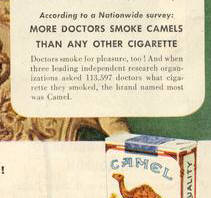|
lopsidedness and other unnoticed essentials I
That statement stops a debate with a scientist because it doesn't make enough sense for the scientist to sink his teeth into. How can anyone argue about scientific theories with someone who thinks "theory" has only its non--science meaning: "guess," "stab in the dark," "hypothesis." A scientific theory is a beautiful web of knowledge spun by many human minds working simultaneously in both cooperation and competition using the best perceptional and observational powers and the most sophisticated information processing the human brain is capable of, while bringing in all the understanding gained in past centuries. That's not a stab in the dark. But it is a process that's unfamiliar to a lot of people. It involves large amounts of the understanding which has accrued over centuries and it also involves reasoning that's a little more careful than the reasoning which drives most day-to-day, on-the-spot decision making. On-the-spot, quick thinking might be careless about sorting relevance from irrelevance, might confuse sufficiency with necessity, and usually doesn't take time to use effective visualizations of things that need several dimensions to visualize -- a lot of things do. The great power of math often gets disregarded, too, even the simplest math -- like simple proportions. Ratios and proportions Scientific theory and thought has a lopsided
advantage over stabs in the dark. Those who use science regularly
recognize that lopsidedness. Those who don't, might not. Science
is truly powerful; stabs, misguided.
Science does something else that goes frequently unnoticed, something which can prevent colossal foolishness and whopping big mistakes. Science searches diligently for evidence that it's theories are wrong. That's not a common way of thinking. There's a pernicious sense throughout society that looking for confirmations is the route to truth (or perhaps justifications of things we do). We think that finding a bit of evidence that a theory is correct is enough to establish that the theory is true. This "cherry-picking" helps advertisers but not us. Help for us comes from the kind of information Consumer Reports gives us. Look at everything pertinent. Sort the relevant from the irrelevant. Avoid logical errors. Recognize and balance the multiple factors. The advertiser's ploy can prove anything because the whiff of confirmation is always easy to find. We must discriminate, making choices through a maze of tangled facts and influences. But our human powers of discriminating between that which is and that which isn't have been disengaged. That leaves us intellectually crippled and open to the self-deceptions that we easily fall prey to when our imaginative wishes rule over the reality we should be paying more attention to. Perhaps we should expect no better.
Society is drowning in advertising. It hammers us constantly with
its pernicious message: "Don't trouble yourself with evidence that we might
be wrong." Scientific testing of hypotheses seems strange in a world
drowning in modern advertising. "Accentuate the positive, eliminate
the negative, and don't mess around with Mr Inbetween," a musical motto
of the 1940's.
|
.
|
|||
|
NEXT: The Lure of the Lotteries |
